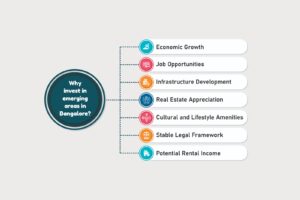Bangalore, now officially known as Bengaluru, has a rich and complex history that spans several centuries. The city’s creation and development can be attributed to various historical, cultural, and geographical factors. Here’s an overview:
- Early Settlements: The area around modern-day Bangalore has been inhabited since ancient times. It was part of various kingdoms and empires, including the Western Ganga Dynasty and the Chola Dynasty.
- Foundation: The foundation of Bangalore, however, is often attributed to Kempe Gowda I, a feudatory ruler under the Vijayanagara Empire. In 1537, Kempe Gowda I established the town of Bangalore by constructing a mud fort and establishing a township within its boundaries. He is credited with planning the city’s layout, which included the establishment of markets, temples, and tanks.
- Mughal and British Rule: Bangalore came under Mughal rule briefly in the 17th century before being annexed by the Marathas. In 1761, the city was conquered by Hyder Ali, the ruler of Mysore, and later by his son Tipu Sultan. However, it was under British control following the defeat of Tipu Sultan in the Fourth Anglo-Mysore War in 1799.
- Colonial Influence: The British played a significant role in the development of Bangalore during the colonial period. They established administrative offices, military barracks, and educational institutions in the city. Bangalore’s salubrious climate also made it a favored destination for British residents and retirees.
- Industrialization and Modernization: In the 20th century, Bangalore underwent significant industrialization and modernization. It emerged as a major center for manufacturing, particularly in industries such as textiles, aerospace, and electronics. The establishment of Hindustan Aeronautics Limited (HAL) in 1940 marked the beginning of Bangalore’s association with the aerospace industry.
- IT Boom: Bangalore experienced a transformative period in the late 20th century with the emergence of the Information Technology (IT) sector. The city became known as India’s Silicon Valley, attracting multinational corporations and IT firms. This IT boom led to rapid urbanization, population growth, and economic development in Bangalore.
- Renaming and Global City Status: In 2014, the Karnataka state government officially changed the name of the city from Bangalore to Bengaluru to reflect its historical and cultural roots. Bengaluru has since become a global city, known for its vibrant culture, educational institutions, research centers, and diverse economy.





